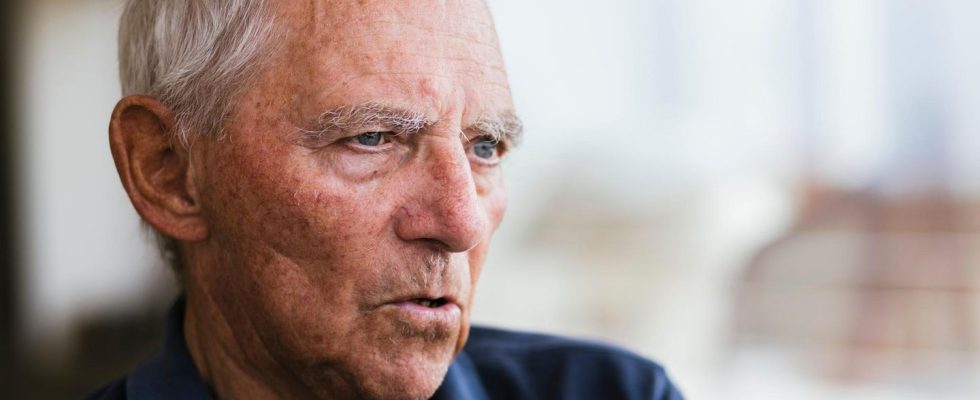Wolfgang Schäuble’s memoirs will be published next week. The star publishes passages in advance and exclusively about his life balance, his attitude to refugee policy and his relationship with the former Chancellor.
In 1972, when he entered the Bundestag, Germany became European football champions for the first time, and Willy Brandt was Chancellor. Wolfgang Schäuble sat in parliament for more than 50 years, he led the Union faction, was a minister under Helmut Kohl and Angela Merkel and at the end of his career, President of the Bundestag. He was denied the really big positions, Chancellor and Federal President – and yet Schäuble was considered a political authority far beyond Germany. He was a popular and not always easy conversation partner. His greatest political success and his greatest personal misfortune came in the fall of 1990: nine days after reunification, which he had negotiated with the last GDR government, Schäuble was gunned down. He survived, remained paralyzed and confined to a wheelchair – and a passionate politician.
The assassination attempt
October 12, 1990. Has for weeks German politican negotiated the treaty on German unity and celebrated reunification in Berlin on October 3rd. Now we’re starting the election campaign for the first all-German federal elections.
The tension of the incredibly strenuous months before subsided after the unification celebrations, but the appointments did not. I was tired and looking forward to the weekend at home. I was still on the phone with my wife as I drove the short distance from Strasbourg airport to my constituency. The hot phase of the election campaign had begun, and the local CDU was waiting for me to appear at the Bruder brewery inn in Oppenau.
The party event was a home game, the euphoria after unity was palpable, and the response in the hall was correspondingly great. Surrounded by many supporters, I was making my way to the exit when a man pushed up behind me and shot three times at close range. In my memory I think I noticed the shots and even felt the muzzle flash. Two bullets hit me, one in the cheek, below the right ear, the second in the back. My bodyguard Klaus-Dieter Michalsky caught the third with his body as he threw himself at the shooter. If she had hit me too, I probably wouldn’t have survived.
Shocked, my eldest daughter called my wife from the crime scene: ‘I think dad is dead.'”
I already knew the perpetrator, who suffered from psychosis, by name; he was the son of a mayor in my constituency. Years earlier, I had even advocated for him to be moved from a foreign prison to Germany. So I wasn’t a random target for him, and yet his delusions could just as easily have been aimed at someone else. That’s another reason why I didn’t think much about the now-deceased man and didn’t have any feelings of revenge. He was ill. Seen this way, what fundamentally changed my life on October 12, 1990 was an accident – and from now on I have to bear the consequences of another person’s illness.
That evening in the inn, my eldest daughter Christine, who was campaigning for the CDU, witnessed the crime. Shocked, she called my wife from the crime scene: “I think dad is dead.” In the days that followed, she and my wife sat at my bedside so that someone would be with me when I woke up from my coma without knowing what had happened.

